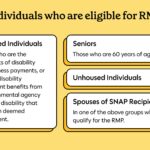It’s a common question for dog owners: “What Can Dogs Eat That Are Human Food?” While commercial dog food provides essential nutrients, offering safe human foods in moderation can be a delightful and healthy treat for your canine companion. However, it’s crucial to know which foods are safe and which are harmful. This guide provides a comprehensive overview of human foods that are generally safe for dogs, along with important considerations for their health and well-being.
Alt text: A mixed-breed dog looks expectantly at a person holding food, illustrating the common desire of dogs for human food.
Vegetables: Healthy and Crunchy Treats
Many vegetables offer nutritional benefits and can be a safe and enjoyable snack for dogs.
Carrots
Carrots are a fantastic low-calorie snack for dogs. They’re a good source of vitamin A and fiber. Chewing on raw carrots can also promote good dental health by helping to remove plaque.
Cucumbers
Cucumbers are another safe and low-calorie option, particularly beneficial for overweight dogs. They provide hydration and contain vitamins and minerals, including vitamin K.
Green Beans
Plain green beans, whether cooked or raw, offer a healthy dose of protein, calcium, iron, and vitamin K. Chop them into smaller pieces to prevent choking.
Fruits: Sweet and Nutritious Options
Fruits can be a delicious and vitamin-rich treat for dogs, but moderation is key due to their sugar content.
Apples
Apples are a good source of vitamins A and C, as well as dietary fiber, which can aid in digestion. However, always remove the core and seeds, as they contain small amounts of cyanide. Avoid giving dogs rotting apples, as they can cause alcohol poisoning.
Bananas
Bananas are packed with magnesium, which is essential for bone health. However, due to their high sugar content, they should only be given as an occasional treat.
Blueberries
Blueberries are a powerhouse of antioxidants, fiber, and phytochemicals. Antioxidants can help reduce oxidative stress and lower the risk of diseases in dogs.
Alt text: A vibrant bowl of fresh blueberries, showcasing their rich color and antioxidant benefits for canine health.
Watermelon
Watermelon is a hydrating treat, especially during warm weather. Be sure to remove all seeds and the rind to prevent intestinal blockage or an upset stomach. It’s a good source of vitamins A, C, and B-6.
Grains and Starches: Simple and Digestible Options
Simple grains and starches can be easily digestible for dogs, especially when they have an upset stomach.
White Rice
Cooked, plain white rice is often recommended for dogs experiencing digestive issues. It’s easily digestible and can help bind stool. However, it can raise blood sugar levels, so dogs with diabetes should only consume it in small amounts.
Plain Popcorn
Plain popcorn (air-popped, without salt, butter, or sugar) can be a fun and nutritious treat. It contains minerals like magnesium, phosphorus, and zinc, which are essential for canine health. Ensure that all kernels are popped to prevent choking.
Proteins: Essential for Muscle Health
Protein sources can be a great addition to a dog’s diet, but preparation is crucial.
Chicken
Plain, boiled chicken (unseasoned) is a safe and easily digestible protein source, especially beneficial for dogs with upset stomachs.
Fish
Salmon, shrimp, and tuna are safe and excellent sources of protein for dogs. Salmon and tuna are rich in omega-3 fatty acids, which support a healthy immune system. Shrimp provides B vitamins that aid digestion and promote healthy blood circulation. Always cook fish thoroughly to eliminate harmful parasites.
Pork
Cooked, unseasoned pork is safe for dogs in small portions. However, its high fat content can be difficult to digest and may lead to inflammation or pancreatitis. Avoid feeding dogs bacon or processed ham due to their high salt content.
Turkey
Cooked turkey, without seasoning, is a good source of protein. Many commercial dog foods contain turkey. Remove the skin and excess fat before serving to prevent pancreatic issues.
Other Safe Human Foods
Dairy Products
Dairy products like milk, cheese, and plain yogurt can be given in small quantities. However, many dogs are lactose intolerant, so excessive dairy intake can cause digestive problems like diarrhea or vomiting.
Peanut Butter
Unsalted peanut butter, without added sugar or sweeteners, is a good source of vitamins E and B, niacin, healthy fats, and protein. Always check the label to ensure it does not contain xylitol, which is highly toxic to dogs.
Alt text: A close-up of a jar of natural peanut butter, emphasizing the importance of checking for xylitol when offering it to dogs.
Coconut Products
Coconut oil and meat may offer benefits like reducing inflammation, boosting the immune system, and improving skin health. Some studies suggest coconut oil supplements might help reduce seizures in dogs with idiopathic epilepsy. Consult with a veterinarian before adding coconut products to your dog’s diet.
Important Considerations
- Moderation: Human foods should only be given as treats and should not replace a balanced commercial dog food diet.
- Preparation: Always cook meat and fish thoroughly and remove bones, seeds, and rinds to prevent choking or digestive issues.
- Seasoning: Avoid adding salt, sugar, spices, or other seasonings to human foods for dogs, as these can be harmful.
- Allergies and Intolerances: Watch for signs of allergic reactions or intolerances, such as itching, vomiting, or diarrhea, after introducing new foods.
- Consult a Veterinarian: Always consult with your veterinarian before making significant changes to your dog’s diet or if you have any concerns about specific foods.
Conclusion
Offering safe human foods in moderation can enhance your dog’s diet and provide additional nutrients. By understanding which foods are safe and following proper preparation guidelines, you can provide your furry friend with healthy and enjoyable treats. Always prioritize their health and consult with a veterinarian to ensure their dietary needs are met.
